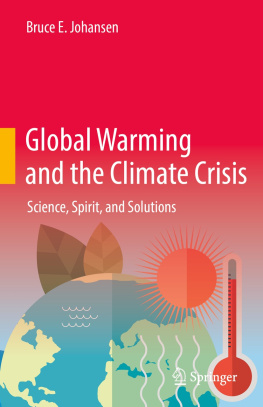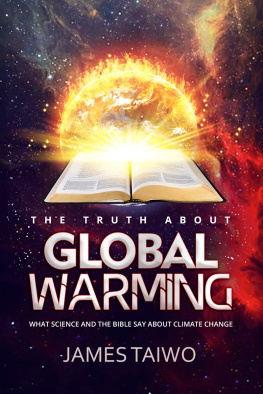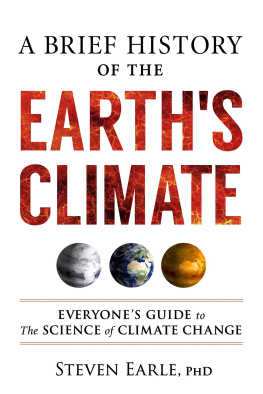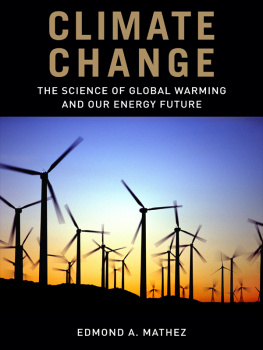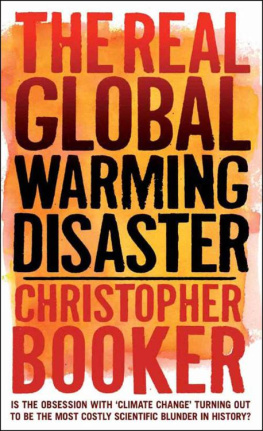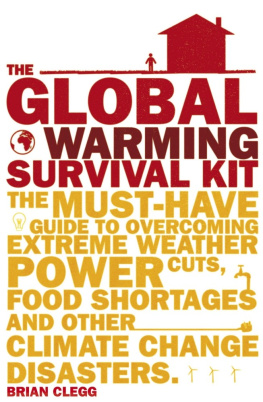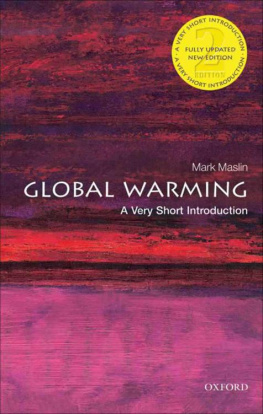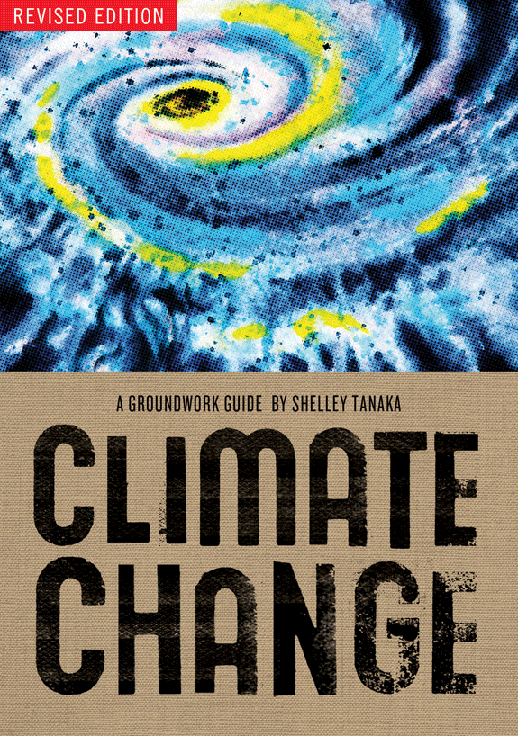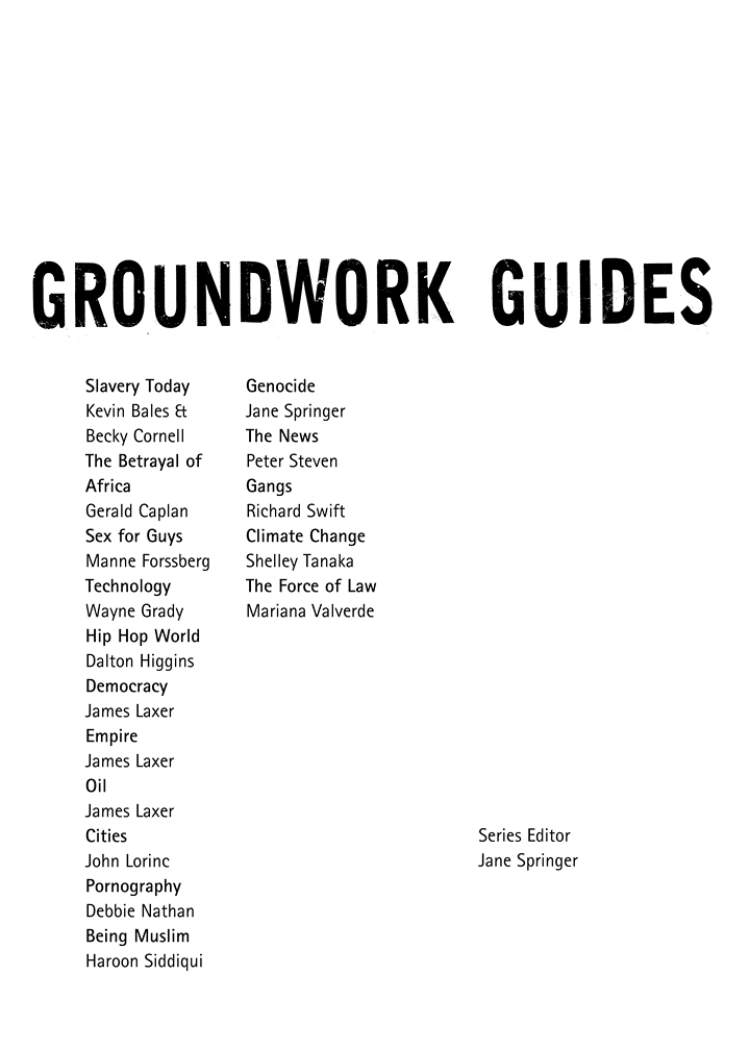
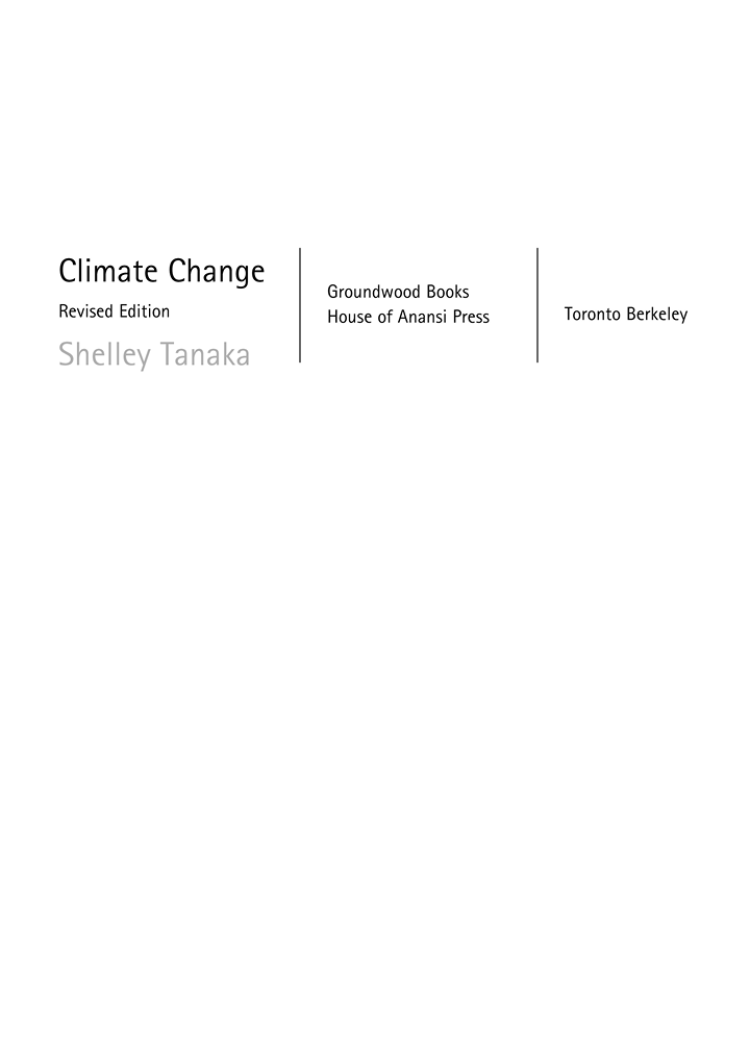
Copyright 2006, 2011 by Shelley Tanaka
Published in Canada and the USA in 2011 by Groundwood Books
All rights reserved. No part of this publication may be reproduced or transmitted in any form or by any means, electronic or mechanical, including photocopying, recording, or any information storage and retrieval system, without permission in writing from the publisher.
Distribution of this electronic edition via the Internet or any other means without the permission of the publisher is illegal. Please do not participate in electronic piracy of copyrighted material; purchase only authorized electronic editions. We appreciate your support of the authors rights.
This edition published in 2011 by
Groundwood Books / House of Anansi Press
110 Spadina Avenue, Suite 801, Toronto, Ontario M5V 2K4
Tel. 416-363-4343
Fax 416-363-1017
or c/o Publishers Group West
1700 Fourth Street, Berkeley CA 94710
www.groundwoodbooks.com
Library and Archives Canada Cataloguing in Publication
Tanaka, Shelley
Climate change : a groundwork guide / Shelley Tanaka. Rev. ed.
(Groundwork guides)
Includes bibliographical references and index.
eISBN: 978-1-55498-204-2
1. Climatic changesEnvironmental aspects. 2. Global warming.
3. Global warmingPrevention. 4. Greenhouse effect, Atmospheric.
I. Title. II. Series: Groundwork guides
QC981.8.C5T35 2012 363.73874 C2011-905395-0
Design by Michael Solomon

We acknowledge for their financial support of our publishing program the Canada Council for the Arts, the Ontario Arts Council, and the Government of Canada through the Canada Book Fund (CBF).
It is never too late to give up our prejudices What old people say you cannot do, you try and find that you can. Old deeds for old people, and new deeds for new.
Henry David Thoreau
Chapter 1
Climate Change Is Here, and Its Real
There is an ecological time-bomb ticking away...
Stephen Byers
Youve probably noticed that the weather has been big news lately.
In 2010, Russia had its hottest July in 130 years (since records have been kept). High temperatures and drought triggered widespread wildres, and at least 15,000 people died. Pakistan suffered record rainfall and its worst ooding in the countrys history. At one point one-fth of the country was under water, leaving 2 million people homeless.
That same year Los Angeles hit a record 45C (113F), and record high temperatures were recorded in seventeen countries around the world. Meanwhile, New Orleans is still recovering from Hurricane Katrina, which caused devastating oods and record damage in 2005. Some climatologists believe that wetter, more intense tropical storm seasons may well be due to global warming.
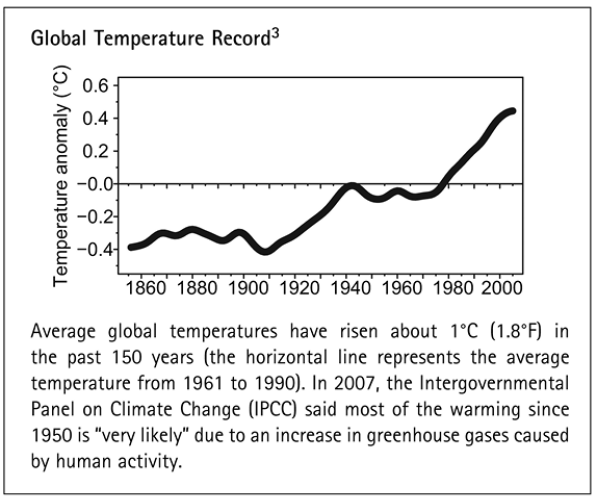
But perhaps the most eerie news is coming from the isolated wilderness of western Siberia, where researchers report that a gigantic expanse of permafrost an area the size of France and Germany combined has begun to melt for the rst time since it was formed at the end of the last ice age. Icy ground that has been frozen for 11,000 years is now, in just a few years, turning into a landscape of mud and lakes, threatening to release huge amounts of methane, a powerful greenhouse gas.
Soggy northlands, heat-related deaths, water shortages, wilting crops, heavy precipitation, power blackouts.
Is this the wave of the future?
Many experts are saying Yes.
Scientists have been warning us about global warming for more than three decades. But many of us are only starting to get the message.
The planet is getting warmer, and the warming is largely being caused by human activity. More important, this warming is happening at an alarmingly rapid rate. The earths surface temperature, which has not changed much in 10,000 years, has become signicantly warmer during the past 150 years. If the current trend continues, many species, including humans, will not be able to adapt quickly enough to avoid severe hardship.
Warmest Years
on Record
1 2010 / 2005
2 2009
3 1998
4 2002
5 2003
In the past hundred years, average global temperatures have risen at least 0.8C (1.4F), and three-quarters of this increase has occurred in the past thirty years. It doesnt sound like much, but consider this. At the depth of the last ice age 20,000 years ago a time when ice covered most of Europe, and the island of Manhattan lay under a blanket of ice half a mile thick the average global temperature was only 5C (9F) colder than it is now. And in the 100,000 years that humans have been around, the planet has never been more than a degree or two warmer than it is today.
Besides, 0.8C is just the average warming. The northern hemisphere is warming faster than the southern hemisphere. More dramatic change is taking place at the poles and in mountainous areas.
In 2002, on the eastern side of the Antarctic peninsula, a giant, oating mass of ice larger than the country of Luxembourg shattered and separated from the continent, disintegrating in just thirty-ve days.
At the other end of the globe, an area of Arctic sea ice one and a half times the size of Wales is lost each year, and an area of permanent sea ice the size of Arizona and Texas combined has disappeared since 1979. The Greenland ice sheet, up to 3 kilometers (2 miles) thick and just a little smaller than Mexico, is suddenly melting and sliding into the ocean much faster than scientists thought it would.
In fact, the World Glacier Monitoring Service says most of the worlds glaciers are retreating. If the warming trend continues as expected, by 2050, Iceland will be virtually glacier free for the rst time in at least 2 million years, polar bears could be extinct, and the Himalayan glaciers, which provide 500 million people with water, will drastically shrink.
Who Says the Planet Is Getting Warmer?
When scientists began noticing that the world seemed to be warming at a remarkable rate, the rst task was to establish the accuracy of the science. The Intergovernmental Panel on Climate Change (IPCC) was established in 1988 by the World Meteorological Organization (WMO) and the United Nations Environment Programme (UNEP). The IPCC is an international body of more than two thousand experts from more than 130 countries representing a wide range of scientic disciplines. The panel studies the science behind climate change, evaluates its consequences and presents options on how to deal with it.
The IPCC has issued four reports since it was established (the fifth report is due in 2013/2014). Each report increasingly emphasizes that not only is the planet warming, but human activity is to blame.
The worlds fresh water is also at risk elsewhere, as lakes and rivers dry up, and as evaporation and seepage from rising sea levels leave higher concentrations of salt and pollutants in existing supplies. In the American Southwest, Lake Powell and Lake Mead have been drying up, threatening the water supply needed to run the Glen Canyon and Hoover dams.






